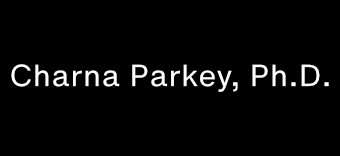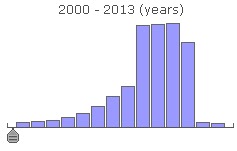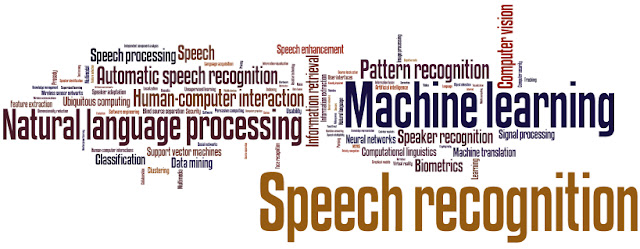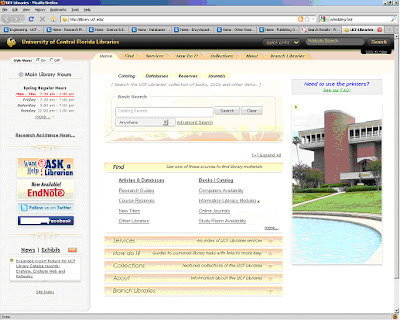Instructional post go here, could be related to research or specific instructions for volunteers I manage or to a broad community of people.
-
Have a general question or comment about GHC12? Just append #ghc12 to your tweet
- Are you the author or panelist of a session in one of the track and you want to publicize it before the conference? append #ghc12 as well as the track hash tag found in the table below, ie #sec
- You are an attendee and you want to follow the updates on a certain track? Do a search on #ghc12 and the track i.e., #sec and save your search to easily access it later
- Just wanna talk about a specific track or topic, you’ve got the hang of it now, just append #ghc12 and the track hash tag i.e. #sec to your tweet!
- Join the attendees list by sending a tweet to @ghc
- Get official tweets by following @ghc
|
Opensource
|
#opensource
|
|
Women of Underrepresented Groups Track
|
#wurg
|
|
Security Track
|
#sec
|
|
PhD Forum
|
#phd
|
|
New Investigators
|
#new
|
|
Leadership Workshop
|
#ldr
|
|
Career Development
|
#career
|
|
CRA-W tracks
|
#craw
|
|
Senior Women’s Summit
|
#senior
|
|
Invited Technical Speakers
|
#tech
|
|
Academic
|
#acad
|
|
Industry
|
#inds
|
|
Social Collaboration
|
#soc
|
|
Theme
|
#theme
|
|
Students
|
#student
|
|
Steering
|
#steer
|
|
Technical Executive Forum
|
#techexec
|
|
BoFs
|
#bof
|
|
Award Winners
|
#award
|
|
K-12
|
#k12
|
|
Keynotes
|
None
|
- Decide what your generic area is, in this case DSP. You need somewhere to start looking. Before you get more specific you want to know all possible people and databases that you could look for to gain information on what is worth while.
- The first place you want to check for topics is the library dissertation and thesis titles. The reason is that previous UCF students will be a lot more willing to give you a place to start. Especially if they just graduated, they may even give you code from their dissertation.
- Attempt to use review journals or databases to let you know what current and up and coming topics are, for example:
- Is there something more specific such as an intersecting field, this can help narrow your topic.
Example Thesis and Dissertation Search
I want to know what people are doing in the area of speaker recognition across the world. So I go to the ProQuest database search and look in the thesis and dissertation database searching on speaker recognition, and I limit my search to English documents.
49,703 results are returned! Here is a histogram of the papers released by decades, looks like the first paper returned was in 1912 and we even have some prerelease listings for next year, 2013. We want to know what the latest dissertations are right? So first let us narrow our search to the last two decades. How many papers is that?
45,316 results still remaining! Not small enough, lets take a look at that updated histogram,
and while we are at it lets look at the list of subject areas we are searching. The list is verrrry long, I’ve narrowed mine to Computer Science and Electrical Engineering. Let’s see whats remaining. 1563 results! That is a lot more manageable.
From this subset I’ve taken the list of author keywords and created a wordle visualization of these keywords, take a look
Do you see just under Machine Learning there is the keyword signal processing? Lets narrow our search to the keywords signal processing as well.
And now we have 18! Yes! Lets look at these 18 titles and authors. Remember that these are dissertations or thesis so the authors have graduated from school in the last 10 years and are probably now the leading researcher in these areas. Also these dissertations have required multiple publications before they were written.
Here are our authors, titles, schools and years:
| Title | Authors | School | Year | Number |
| Robust and efficient techniques for speech recognition in noise | Sarikaya, Ruhi; Hansen, John H L | Duke University, 2001 | 2001 | 3031012 |
| High range resolution radar target classification: A rough set approach | Nelson, Dale; Starzyk, Janusz A | Ohio University, 2001 | 2001 | 3019554 |
| Enhancement and recognition of whispered speech | Morris, Robert; Clements, Mark A | Georgia Institute of Technology, 2003 | 2003 | 3110442 |
| Signal processing strategies for better melody recognition and improved speech understanding in noise for cochlear implants | Kasturi, Kalyan; Loizou, Philipos C | The University of Texas at Dallas, 2006 | 2006 | 3238589 |
| Multi-classifiers and decision fusion for robust statistical pattern recognition with applications to hyperspectral classification | Prasad, Saurabh; Bruce, Lori M; Fowler, James E; Younan, Nicolas H; Du, Jenny Q | Mississippi State University, 2008 | 2008 | 3331332 |
| Model-based speech separation and enhancement with single-microphone input | Lee, Siu; Ching, Chung | The Chinese University of Hong Kong (Hong Kong), 2008 | 2008 | 3348874 |
| Speech processing and modeling using a non-linear time-frequency algorithm | McNamara, David | Clarkson University, 2008 | 2008 | 3340051 |
| A sequential algorithm for biological event detection using statistical nonstationarity | DiCecco, John | University of Rhode Island, 2008 | 2008 | 3328721 |
| A model of head-related transfer functions based on a state-space analysis | Adams, Norman; Wakefield, Gregory H | University of Michigan, 2008 | 2008 | 3304909 |
| Signal processing meets computer vision: Overcoming challenges in wireless camera networks | Yeo, Chuohao; Ramchandran, Kannan | University of California, Berkeley, 2009 | 2009 | 3383584 |
| Distributed multichannel processing for signal enhancement | Trawicki, Marek | Marquette University, 2009 | 2009 | 3357974 |
| Spectral refinements to speech enhancement | Charoenruengkit, Werayuth; Erdol, Nurgun | Florida Atlantic University, 2009 | 2009 | 3351583 |
| Applications of sensor arrays in acoustic and seismic signal processing | Xie, Peng; Grant, Steven L | Missouri University of Science and Technology, 2009 | 2009 | 3365041 |
| Nonstationary time series modeling with applications to speech signal processing | Rudoy, Daniel; Wolfe, Patrick J | Harvard University, 2010 | 2010 | 3435443 |
| Dimensionality reduction and fusion strategies for the design of parametric signal classifiers | Kota, Srinivas; Gupta, Lalit; Bhattacharya, Bhaskar; Botros, Nazeih; Choudhary, Ruplal; et al | Southern Illinois University at Carbondale, 2010 | 2010 | 3440304 |
| Acoustic MEMS array embedded in a scalable real-time data acquisition and signal processing platform | Turqueti, Marcos; Saniie, Jafar | Illinois Institute of Technology, 2010 | 2010 | 3435825 |
| Use of acoustic analysis to develop, test and optimize cochlear implant sound processing | Won, Jong; Rubinstein, Jay T | University of Washington, 2010 | 2010 | 3431627 |
| Architecture and analysis for next generation mobile signal processing | Woh, Mark; Mudge, Trevor N | University of Michigan, 2011 | 2011 | 3477118 |
Remember this is not a perfect science, finding the right things is an art, so do these look like what we were looking for? Yes and no depending on your specific area, but its close.
More on searching next time but for now let me point out a good data visualization tool, just be sure to read the rules before using it http://www-958.ibm.com/software/data/cognos/manyeyes/
Here is a visualization of the data we found:
take a look at the interactive version on many eyes if you like http://www-958.ibm.com/me/visualizations/dissertations-by-state/comments/3e11c868580811e194b4000255111976
Until next time!
- Here is a screenshot of the page
- If you don’t know how to find something that you know should be available make use of the ask a librarian service, look on the left hand side, half way down you see “Want Help? Ask a Librarian” here is a link to that page: http://library.ucf.edu/Ask/ from here I generally always use the chat, this is because it is efficient and concise as opposed to a phone conversation where you make small talk and can be put on hold and you are stuck standing there with a phone in your hand. Being a multitasker, I just switch back to what I was doing while I wait on the chat response. If this doesn’t work out I will call or go in person. Many times I am in a “research zone” mentally and the last thing I want to do is get distracted, another reason the chat works best for me, it is a bit impersonal and that’s what I need to stay focused.
- Useful things to explore before starting your research
- Research Guides – Also located on the Home page under Find, the second link down. Click on the link, http://guides.ucf.edu/ from here there are a lot of guides available. Each librarian can make their own guide on different topics. We want to focus on Engineering so
- On the right hand side click on Engineering, it takes you to here http://guides.ucf.edu/cat.php?cid=8548 every one of these guides are useful to you when starting research. Once you get going you may never look at these again but you should now I will point out a few but look at all of them.
- Create a RefWorks account, you will need to use the links above and use your library login to create the account. Use the quick start guide if it gets confusing. Call/email me if it is still confusing.
- Learn how to add folders
- Learn how to import references
- Set up your default citation settings to IEEE format.
- Always double check references before logging out, make sure all info that you need is entered.
- Every time you start a new topic of research create a new folder and add your papers to this folder
- It is also a good idea to have sub-folders in each topic area that are something along the lines of:
- Read an Liked it
- Read and Hated it
- Gray Area
- Unread
- In the beginning, all of the papers and sources you have will be in the unread folder and as you go through them sort them accordingly.
- The Gray Area is important because you do not always know if the resource is useful or not until you become a subject matter expert so don’t hesitate to use this subfolder.
Ok, I’m going to leave this here and there will probably be another part on this later once it is time to write a paper or dissertation…. but for now on to the next topic.
If you are not a UCF student a lot of this will still apply to you, you will simply be using your schools library website.





